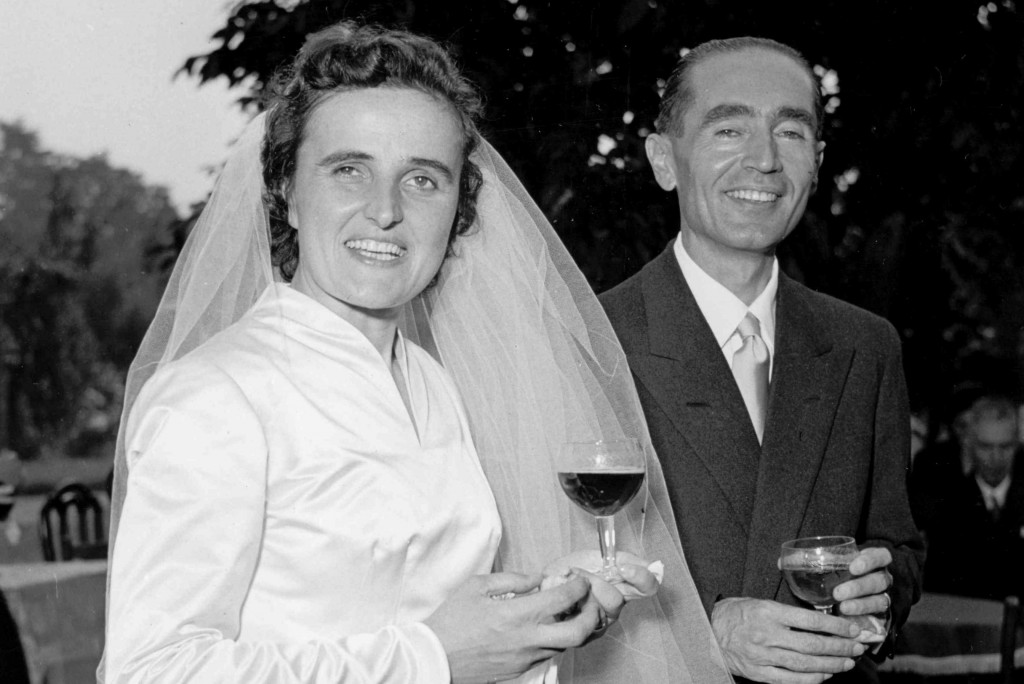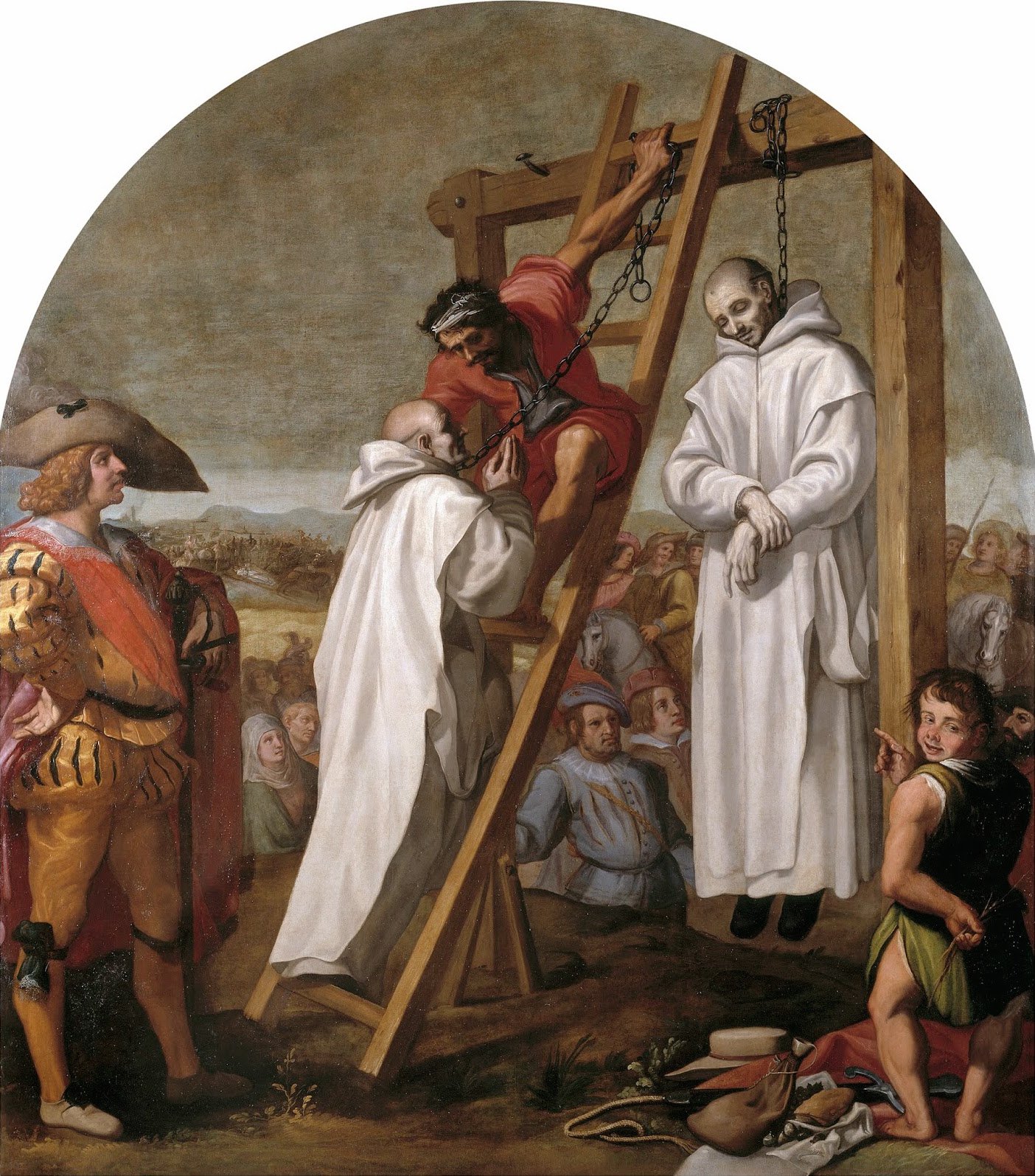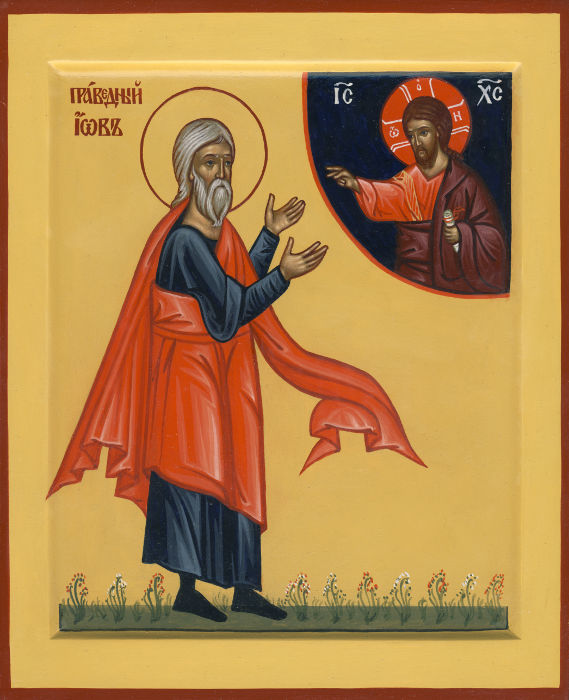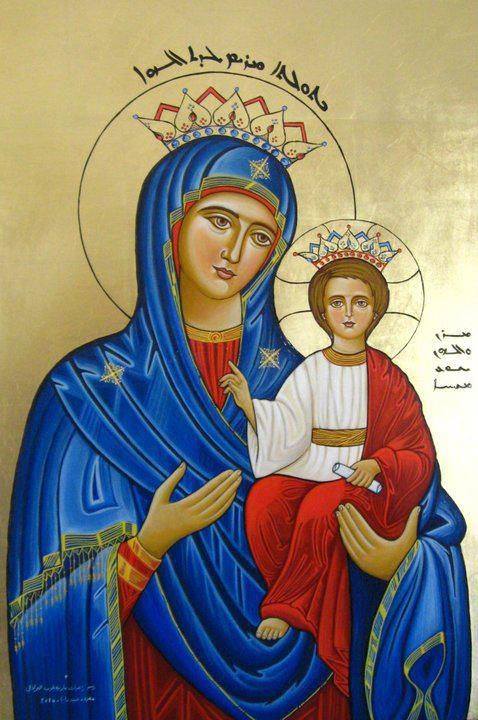Rogation Days 2019 are coming… May 27-29.
If you have a farm or extensive vegetable garden, then ask your priest to come and pray the rogation prayers.
Read:
Rogation Days 2019 are coming… May 27-29.
If you have a farm or extensive vegetable garden, then ask your priest to come and pray the rogation prayers.
Read:
 Today in 2004, Pope Saint John Paul II canonized Gianna Beretta Molla. Our patron saint is an incredible witness and builder of peace. Saint Gianna’s feast day is April 28.
Today in 2004, Pope Saint John Paul II canonized Gianna Beretta Molla. Our patron saint is an incredible witness and builder of peace. Saint Gianna’s feast day is April 28.
Saint Gianna is not only a holy person in love with her Savior, but a wife, mother, and physician who continues to show us that it possible to follow the Gospel closely and faithfully. She is known as a patron for ProLife work and marriage. In fact, our pregnancy resource center in New Haven (CT) is named for this great woman and disciple of Jesus, Saint Gianna.
The sainted pope said in his homily:
… simple, but more than ever, significant messenger of divine love. In a letter to her future husband a few days before their marriage, she wrote: “Love is the most beautiful sentiment the Lord has put into the soul of men and women”.
Following the example of Christ, who “having loved his own… loved them to the end” (Jn 13: 1), this holy mother of a family remained heroically faithful to the commitment she made on the day of her marriage. The extreme sacrifice she sealed with her life testifies that only those who have the courage to give of themselves totally to God and to others are able to fulfil themselves.
Through the example of Gianna Beretta Molla, may our age rediscover the pure, chaste and fruitful beauty of conjugal love, lived as a response to the divine call!
Not to be missed! The Field Afar: The life story of Vincent Capodanno, a Catholic Priest who received the Medal of Honor for his valor as a chaplain to the Marine Corps during some of the most harrowing battles of the Vietnam war and whose Cause for Canonization is currently open in Rome.
Showing as part of the New Haven International Film Festival on Thursday, May 16 – 8:35 PM at Gateway Community College, 20 Church Street, New Haven.
Tickets: https://filmfreeway.com/NewHavenFilmFestival/tickets
 An incredible close-up documentary on honey bees. A new level of respect and love for these creatures. As I compose these thoughts, 2019 is the third year of keeping bees. So far, I have 7 hives of honey bees.
An incredible close-up documentary on honey bees. A new level of respect and love for these creatures. As I compose these thoughts, 2019 is the third year of keeping bees. So far, I have 7 hives of honey bees.
https://www.kqed.org/science/1940898/honey-bees-make-honey-and-bread
We must aim at heaven with all our strength. Man will have to re-learn, much more positively and intensively than before, that life leads from the personal dialogue with God to the actual personal encounter and the experience of unity with God.
He will have to learn that this is his heaven and his real, his only, home. Then he will learn to pray, not merely as a duty and in obedience, but with intense vitality and with all the driving force of his own free will.
The Prison Meditations of Alfred Delp
Fr. Alfred Delp, SJ
 Today in the Roman Martyrology, the Church gives us feast of Blesseds John Rochester and James Walworth: English Catholic priests, Carthusian monks, and martyrs of the Protestant Reformation—hanged at York on this day in 1537, after refusing to sign King Henry VIII’s Oath of Supremacy.
Today in the Roman Martyrology, the Church gives us feast of Blesseds John Rochester and James Walworth: English Catholic priests, Carthusian monks, and martyrs of the Protestant Reformation—hanged at York on this day in 1537, after refusing to sign King Henry VIII’s Oath of Supremacy.
Pope Leo XIII beatified the Fathers in 1888.
You may want to read the description of the painting about Fathers Rochester and Walworth here.
Can we give our lives to Christ and the Church in the way that Blesseds John and James did?
Music is essential to life. Sacred music –that which is lived and performed in the Liturgy– is crucial important and integral to the worship of God. Yes, we live the text and the notes.
I love music. I love listening to music. I love sharing the experience of listening to music with others. I love purchasing, supporting musicians, and the like. I don’t sing even though I probably have one note (like everybody else).
The “normal” parish does not spend enough time thinking about the sacred music program never mind spending money on it. Even a financially strapped parish could put $50.00 per week away for sacred music. More important to money is the understanding of pastor and laity have regarding the music and give personal, informed and reasonable interest to it and the people involved. The worship of God is paramount; the lifting of our soul is desired and beautiful and healing.
I stumbled upon Benedict Sheehan’s blog post “Good Church Music Starts with Kids” and I think he’s spot-on and parishes, especially Catholic parishes, need to attend to what he Benedict proposes.
Benedict Sheehan regularly posts at The Music Stand –visit him there.
 The Prophet Job’s feast on the Byzantine liturgical calendar is May 6 and the Latin Church’s liturgical calendar on May 10.
The Prophet Job’s feast on the Byzantine liturgical calendar is May 6 and the Latin Church’s liturgical calendar on May 10.
Job is the archetype of the just man. According to the religious and ethical thought of his time, which viewed material prosperity as evidence of an upright life, Job was expected to be wealthy, and yet he was afflicted with suffering. Modern scholars point out that Job was not a historical person, but an ‘epic character.’ While this is no doubt the case of the Job of the first of the Wisdom books, the author probably based his work on the Job of ancient tradition, who was believed to have lived during the patriarchal age on the borders of Arabia and Edom.
The Book of Job is cast in dialogue form between Job and three friends who come to commiserate with him over his misfortunes. They insist that his condition is a punishment from God for his sins, but Job maintains that he is innocent. Near despair, he demands a hearing from God, and this he is granted. God speaks from a thunderstorm to expose as futile all the solutions of Job and his friends since God cannot be judged and his ways are inscrutable.
The Church uses the book of Job during Holy Week, where Job’s suffering innocence serves as a prophetic reflection of the innocent suffering of Christ.
Meditation by the New Skete Communities
 In another place, I posted the following on Mary’s place in the theology of St Ephrem.
In another place, I posted the following on Mary’s place in the theology of St Ephrem.
The month of May is traditionally known on as the Month of Mary. The Church holds Mary in the highest esteem; she is venerated but not worshipped by Catholics and Orthodox. A Syrian Father, St Ephrem, –the Harp of the Holy Spirit– the fourth century hymnographer, theologian and deacon as something to offer about the Mother of God.
“As lightning illuminates what is hidden, so also Christ purifies what is hidden in the nature of things. He purified the Virgin also and then was born, so as to show that where Christ is, there is manifest purity in all its power. He purified the Virgin, having prepared Her by the Holy Spirit… having been born, He left Her virgin. I do not say that Mary became immortal, but that being illuminated by grace, She was not disturbed by sinful desires”
“Most holy Lady, Mother of God, alone most pure in soul and body, alone exceeding all perfection of purity… alone made in thy entirety the home of all the graces of the Most Holy Spirit, and hence exceeding beyond all compare even the angelic virtues in purity and sanctity of soul and body… my Lady most holy, all-pure, all-immaculate, all-stainless, all-undefiled, all-incorrupt, all inviolate spotless robe of Him Who clothes Himself with light as with a garment… flower unfading, purple woven by God, alone most immaculate.”
“There is in you, Lord, no stain, nor any spot in your mother.”
“You Jesus and your mother are the only ones who are beautiful in all aspects. Because in you, O Lord, there is no deformation, and in your mother, there is no stain.”
“The two women were pure and simple, Mary and Eve. One of them, however, became the cause of our death and the other, the cause of our life.”
St. Ephrem the Syrian